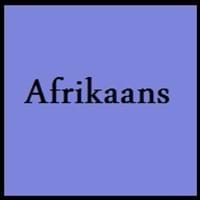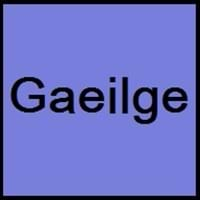Afrikaans and Irish
- Afrikaans Language is a mixture of English, Dutch, German, French and some South African language like Xhosa.
- Afrikaans Language lacks case and gender distinctions.
- In Irish language, there are no exact words for "yes" or "no".
- There are different set of numbers for counting humans and another set for counting non-humans in Irish Language.
All Afrikaans and Irish Dialects
Most languages have dialects where each dialect differ from other dialect with respect to grammar and vocabulary. Here you will get to know all Afrikaans and Irish dialects. Various dialects of Afrikaans and Irish language differ in their pronunciations and words. Dialects of Afrikaans are spoken in different Afrikaans Speaking Countries whereas Irish Dialects are spoken in different Irish speaking countries. Also the number of people speaking Afrikaans vs Irish Dialects varies from few thousands to many millions. Some of the Afrikaans dialects include: Kaapse Afrikaans, Oranjeriverafrikaans. Irish dialects include: Connacht Irish , Munster Irish. Also learn about dialects in South American Languages and North American Languages.
Afrikaans and Irish Speaking population
Afrikaans and Irish speaking population is one of the factors based on which Afrikaans and Irish languages can be compared. The total count of Afrikaans and Irish Speaking population in percentage is also given. The percentage of people speaking Afrikaans language is Not Available whereas the percentage of people speaking Irish language is Not Available. When we compare the speaking population of any two languages we get to know which of two languages is more popular. Find more details about how many people speak Afrikaans and Irish on Afrikaans vs Irish where you will get native speakers, speaking population in percentage and native names.
Afrikaans and Irish Language Codes
Afrikaans and Irish language codes are used in those applications where using language names are tedious. Afrikaans and Irish Language Codes include all the international language codes, glottocodes and linguasphere.





